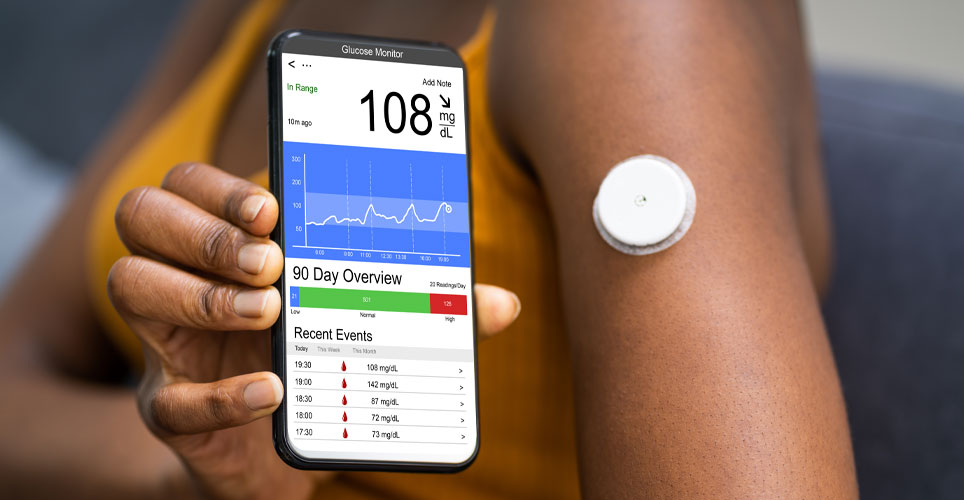
This is the last article of a November series in connection with National Diabetes Month. The goal is to increase awareness and education about prediabetes/diabetes, as well as proven prevention programs.
One in three U.S. adults has a condition called prediabetes. Most are unaware, meaning they don’t know that, if their risk factors aren’t addressed, they have a good chance of developing Type 2 diabetes.
A 60-Second Answer
How do you find out if you’re at risk? One minute and the puppies with a purpose video below can get you started.
If the quiz identifies prediabetes in you, today’s the day to act. U-M’s Diabetes Prevention Programs (DPPs) can help chart your course toward better health.
Reverse Your Risk
The DPPs are offered as value-added benefits of U-M’s Health Plans, so there’s no charge for participating. Facilitated by Omada Health and the National Kidney Foundation of Michigan (NKFM), the programs feature the following:
- Education about dietary, lifestyle and other small, sustainable changes to decrease risk factors
- Interaction with others who have similar goals and challenges
- Online components. The Omada program is completely online. The NKFM program has online components, with plans to incorporate in-person activities as soon as public health conditions allow.
- Success coaches to support participants, answer questions and cheer their progress
Take His Word For It
Jeffrey Kullgren, MD, U-M associate professor of internal medicine, addresses the health effects of diabetes and prediabetes daily. He leads a National Institutes of Health-funded, randomized trial that is testing new strategies to motivate Michigan Medicine patients to reduce their risk for developing Type 2 diabetes. He answers questions regarding what you can do to prevent prediabetes from becoming a serious health concern.
About 88 million Americans have prediabetes and don’t know it. Why are they unaware?
Dr. Kullgren: There can be a lot of reasons. First, most people with prediabetes don’t have symptoms, so there won’t be any warning signs that lead them to seek care. Second, many people have missed routine preventive care during the COVID-19 pandemic. Third, not everyone with risk factors is getting screened for Type 2 diabetes, which is usually how prediabetes is found.
Does prediabetes always develop into Type 2 diabetes, or can it be reversed?
Dr. Kullgren: While most people with prediabetes will eventually develop Type 2 diabetes, many will not. The chances of prediabetes progressing to Type 2 diabetes decrease significantly when people take steps that have been shown to slow this progression. When people take these steps, some of them are even able to bring their blood sugar levels back to normal.
What are some of the most important steps people can take to stop prediabetes from progressing?
Dr. Kullgren: The most effective thing that people can do is participate in a Centers for Disease Control-recognized Diabetes Prevention Program, such as the Omada program or the NKFM program. Other helpful steps can include taking a medication called metformin, or pairing modest weight loss with regular physical activity.
What have your patients’ experiences been with Diabetes Prevention Programs?
Dr. Kullgren: My patients who have participated in a Diabetes Prevention Program or another group-based lifestyle change program have learned a lot of helpful information, received encouragement from trained coaches, and gotten support from peers who are also working to prevent diabetes. Those who stick with the program have good outcomes and learn new skills they can take with them into the future.
Do you have a message for anyone who has thought about applying to a DPP, but hasn’t done so yet?
Dr. Kullgren: There is no time like the present! In contrast to other health problems, Type 2 diabetes is largely preventable. But first, people need to know they have prediabetes and then take evidence-based steps to reduce their risk of progression. So, if you have risk factors for Type 2 diabetes, find out if you have prediabetes so you too can capitalize on this window of opportunity!
View the DPP web page for eligibility criteria, application information and more details.
